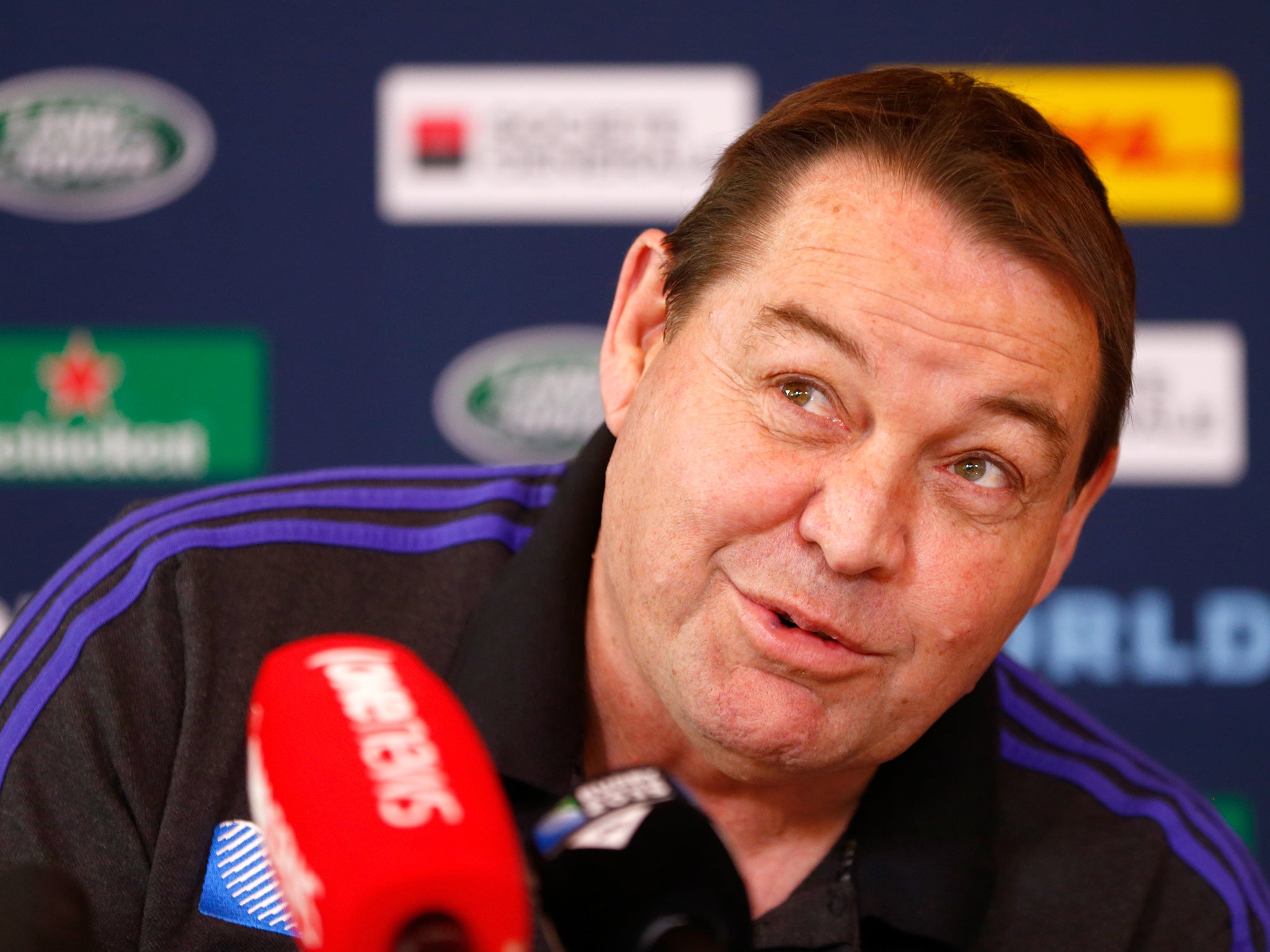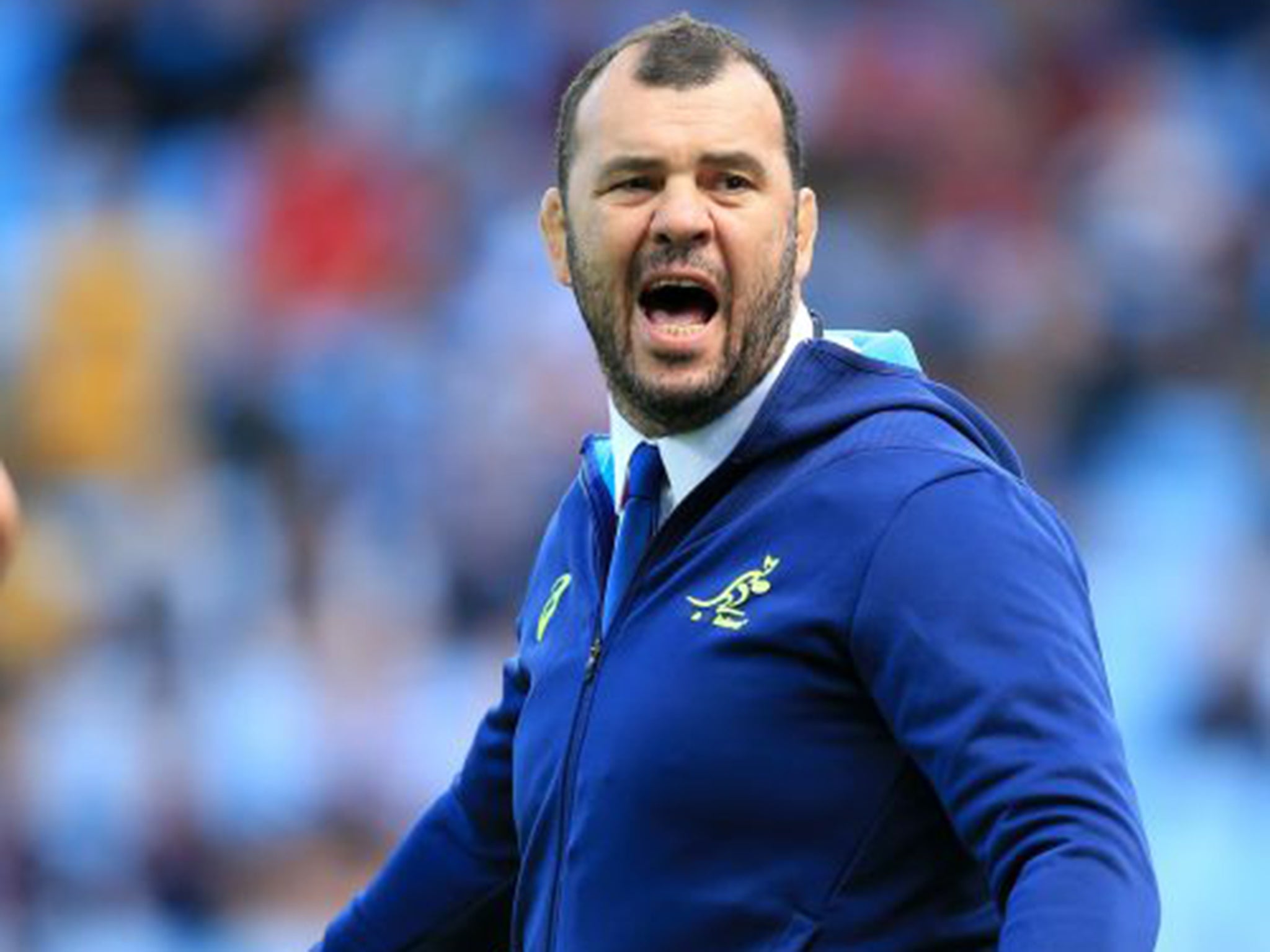RWC 2015: All Blacks move to England digs ahead of final against Australia
Bagshot-bound Kiwis are used to staying in city centres

Your support helps us to tell the story
From reproductive rights to climate change to Big Tech, The Independent is on the ground when the story is developing. Whether it's investigating the financials of Elon Musk's pro-Trump PAC or producing our latest documentary, 'The A Word', which shines a light on the American women fighting for reproductive rights, we know how important it is to parse out the facts from the messaging.
At such a critical moment in US history, we need reporters on the ground. Your donation allows us to keep sending journalists to speak to both sides of the story.
The Independent is trusted by Americans across the entire political spectrum. And unlike many other quality news outlets, we choose not to lock Americans out of our reporting and analysis with paywalls. We believe quality journalism should be available to everyone, paid for by those who can afford it.
Your support makes all the difference.The All Blacks, gearing up for this weekend’s World Cup final with Australia, headed to the most palatial of training bases: the Pennyhill Park in Surrey, home to the England team since the turn of the century, on and off, but uninhabited by red-rose personnel since Chris Robshaw and company bombed out of their own global tournament at the first available opportunity, three matches into the pool stage.
If there were obvious attractions for the reigning champions – perfect practice paddocks indoors and out; the best equipped rugby-specific gym in the country – some features were of questionable value. A four-poster bed? A Michelin-starred 10-course tasting menu? Afternoon tea at £49 a head? A bottle of 1996 Château Petrus at £1,850 a throw? Maybe not.
As for the thing the New Zealanders most enjoy back in the Land of the Long White Cloud – namely, the chance to head into town for a quiet coffee and a movie – well… that wasn’t available. The walk from the hotel lobby into downtown Bagshot is not a short one. You have to share Alfred Wainwright’s love of the great outdoors just to reach the end of the drive.
“I’ve heard it’s pretty posh,” said Ian Foster, assistant coach to the silver-ferned brigade shortly before boarding the team bus for the short drive from Weybridge, where he and his colleagues plotted last weekend’s semi-final victory over South Africa. “But frankly, it’s an external issue. It doesn’t make much difference. What matters to us is preparing well, not where we stay.

“Will we want to copy stuff? This country has some amazing facilities and there’s plenty we’d like to take back home with us. But we’re in a different environment and we don’t have the ability to reproduce things like this, so we have to find our own way of operating. The bases have been very good during this tournament, but it doesn’t prove anything.”
As the Rugby Football Union chief executive, Ian Ritchie, continues his review into England’s abject failure, aided and abetted by the likes of Sir Ian McGeechan, the most successful British & Irish Lions coach of them all, and the World Cup-winning lock Ben Kay, there is likely to be some criticism of the Bagshot “bubble” from players who felt isolated – not to say trapped – during the build-up to the tournament and, indeed, in its initial stages.
None of the All Blacks who appeared in public session on Monday went close to saying so, but they are likely to have a good deal of sympathy with the argument that the home nation suffered for the want of human contact. Back home in New Zealand, the title favourites have always played Tests around the country rather than at a single venue, invariably stay in city centre accommodation and train on local club and university pitches. When they visit London for an autumn international, they usually plant themselves in the middle of Kensington High Street. Perhaps there is a lesson here.
While the holders refused to wallow in the sentimentality surrounding the imminent international swansongs of some of their greatest players – Richie McCaw, Daniel Carter, Conrad Smith – by insisting that the send-offs would wait until after close of play at Twickenham on Saturday, the Wallabies were making optimistic noises about their walking wounded. The full-back Israel Folau, the centre Matt Giteau, the prop Scott Sio and the No 8 David Pocock all have their orthopaedic issues, but the head coach, Michael Cheika, expected each to take an immediate part in training.
Cheika could also be heard extolling the virtues of perhaps the most diverse group of players ever to represent the Wallaby nation. “We have people from different lands and origins, people with very different characters,” he said before highlighting the political mix in a squad featuring a high-profile climate change activist in Pocock. “I wouldn’t say we have anyone from the extreme right, but there are people from the extreme left and the centre right. We have the jokers, the lovers, the fighters. I like having people in the team who think differently about everything.”
Meanwhile, the tournament organisers confirmed that the Welsh referee Nigel Owens will run the final, with John Lacey of Ireland controlling the third-place play-off between Argentina and South Africa at the Olympic Stadium on Friday night. Owens, a warm favourite for the honour after his successful handling of the New Zealand-France quarter-final in Cardiff, will have the two other contenders, Wayne Barnes of England and the Frenchman Jérôme Garcès, as his touchline assistants.
Join our commenting forum
Join thought-provoking conversations, follow other Independent readers and see their replies
Comments